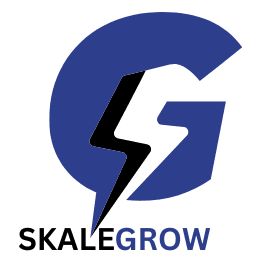The online marketing space is crowded, and winning in B2B content marketing is tough. Everyone is writing blogs. Every founder is active on social media. Email marketing has become common. This means that you need to adopt conventional as well as unconventional tactics to be effective with your content marketing efforts.
Watch the below video where I share a unique perspective on this.
Whatever industry you are in, one of the key ingredients of content marketing success is using the right MARKETING TOOLS. In this article, we will discuss all you need to know when it comes to setting up a B2B content marketing tech stack. From traditional tools to the most modern AI-based tools, we will cover everything related to tools for content marketing.
Let’s get started.
B2B content marketing tools for modern B2B marketing teams
The best way to understand and learn the different content marketing tools is by classifying them into different categories.
Following are the different types of tools you need to take your content marketing to the next level:
- Content writing and generation
- AI video generation
- Text-to-speech conversion
- Grammar and plagiarism checkers
- SEO tools
- Content research and ideation platforms
- Website personalization tools
- Design and video editing tools
- Interactive content creators
- Content marketing analytics tools
- Miscellaneous
Here, we have considered all forms of content such as text, videos, images, etc. The miscellaneous category will cover tools that do not belong to any of the other categories.
That said, let’s dive deep into each type of content marketing tool.
1. AI content writing assistants
ChatGPT popularized AI-based content generation. However, AI-based content writing tools have been there in the market for quite a while. They can be used for:
- Ad copy (ad headlines, link descriptions, listicles)
- Website copy (call to action, social proof, landing page, headings)
- Blog content (intro, outlines, topic ideas, body content, conclusion)
- Email content (product promotions, newsletter content)
- Social media content (carousel posts, hashtags, video descriptions, post captions)
- Sales copy (using various frameworks such as PAS, AIDA, and before-after-bridge)
- Product descriptions
Examples of AI writing assistants include:
To learn more about AI writing assistants and the different tools you can use for text content generation, please check out the below article:
Best AI writing tools you should explore in 2023
2. AI video generation
Creating videos has been a time consuming process. But not anymore. With AI-based video generation platforms like Synthesia and HeyGen, you can automatically convert a script into a full-fledged video with an AI avatar delivering the content.
Watch the below video from Synthesia to understand how this works.
To learn more about how AI-based video generation platforms work, visit the below article:
Automated Video Generation – The Future Of Video Marketing
3. Text-to-speech conversion
Text-to-speech conversion is another application of AI in marketing where text content can be automatically converted into natural-sounding voiceovers. Speechelo and ElevenLabs are examples of tools that can do this.
We discussed this in detail in one of the editions of The Skalegrow Newsletter. I recommend you check it out. Here is the link.
4. Grammar and plagiarism checkers
Grammar and plagiarism checkers make sure that your content achieves the desired quality and does not violate any copyright rules. Grammarly is a tool that has gained immense popularity for checking grammar and enhancing the tonality of your content. It also comes with a plagiarism checker.
Other examples of plagiarism checkers are DupliChecker, QueText, and Copyleaks. This category would also include readability enhancement tools like Hemingway.
5. SEO tools – the core of a B2B marketing tech stack
SEO tools include keyword research and analysis tools like Ahrefs, SEO automation tools like Alli AI, or AI-based search engine simulators like MarketBrew. These tools are used for performing different tasks like:
- Content gap analysis
- Backlinks analysis
- Finding new keyword ideas
- Related keywords research
- Tracking keyword rankings
- Generating schema markups
- Predict search rankings
Depending on the tool you use, the features would change. However, the most commonly used SEO tools are end-to-end SEO platforms like Ahrefs and SEMRush.
Related: Getting Started With SEO-led Content In 3 Days
6. Content research and ideation platforms
Many of us use ChatGPT as a source for content ideas. In that sense, it is also a content research and ideation tool. But here, let us look at a few other examples that can do much more than what a ChatGPT could do in terms of audience and content research.
- SparkToro: SparkToro gives you a consolidated list of websites, YouTube channels, podcasts, and social media handles that discuss topics related to your niche. It also gives info on the most common related topics discussed, hashtags, and phrases used.
- Buzzsumo: Buzzsumo shows you the most popular content related to a keyword or topic by taking into consideration parameters such as traffic and social media shares.
- Ahrefs: Ahrefs’ content explorer gives you a list of the most popular content by domain rating and ranking.
- Exploding Topics: Exploding Topics helps you identify trending topics even before they get popular. You can also get these insights by email if you subscribe to its newsletter.
7. Personalization tools
Personalization tools help you show personalized content to website visitors based on their firmographic characteristics and past behavior on the site. Some personalization tools can also personalize your content on other channels like email and ads.
Examples of personalization tools include Hyperise, Personyze, and Sitespect. Intent intelligence and ABM suites like 6sense and Demandbase also offer personalization as one of their features.
Check out the below video from Hyperise to understand how marketing and sales personalization work.
8. Design and video editing tools
This category includes all the tools you use for designing and editing images and videos. They can be broadly classified into two:
- Image design and editing software: Adobe Photoshop, Canva, Figma, Adobe Illustrator, CorelDraw, etc.
- Video creation and editing software: Canva, Adobe Premiere, Adobe After Effects, etc.
In addition to these, if you need to create 3D videos, you will have to use 3D/VFX tools like Maya.
9. Interactive content creators
These are tools that can help you create interactive content such as dynamic webpages, quizzes, surveys, popups, etc. Given below are a few tools using which you can do this:
Every interactive content tool mentioned above is different. I recommend you check them out yourself to understand what each brings to the table. You might find a few that are a perfect fit for your business.
10. Content marketing analytics tools
Content marketing analytics refers to analyzing the effectiveness of your content marketing efforts. The different types of metrics you would want to analyze include:

Content marketing analytics tool
- Website traffic
- SEO (keywords, backlinks)
- Content popularity (content shares, engagement)
- Video views and engagement
- Social media analytics
- Heatmap analysis
- Ads analysis
- Email marketing
- Newsletter
- Podcasts
You would also want to measure the impact of content marketing by looking at the number of leads you generate. Since content marketing analytics is a topic that requires a detailed view, I recommend you read the below article:
Content Marketing Analytics – What It Is And How To Build A System For It
11. Miscellaneous – other B2B content marketing tools
Here, we look at B2B marketing tools that are used directly or indirectly for content marketing but do not belong to any of the above categories we discussed. These include:
- Podcast tools: These include hosting tools (like Spotify for podcasters, Simplecast, and ZenCastr), remote recording platforms (like SquadCast and Riverside), and audio & video editing software (like Podcastle and Descript).
- Visitor tracking tools: Visitor tracking tools help identify the accounts visiting your website. This helps to assess if your content is bringing the right accounts to youer website. Examples include Factors AI, Kwanzoo, VisitorQueue, LeadFeeder, etc.
- Exit intent/popup tools: These are used to show popups to website visitors, especially when they are about to leave a website. They help to promote different kinds of marketing collaterals in addition to creating new content types like quizzes and surveys. Examples include OptinMonster and OptiMonk.
- Email and marketing automation platforms: These are platforms like HubSpot and Salesforce Marketing Cloud that help automate different marketing activities like emailing, creating landing pages, building forms, etc.
- Website chat engines: Website chat engines support content marketing by automating content and collateral sharing with the help of chatbots. Some of the popular names in this category are Drift, Intercom, and LivePerson.
Final words about B2B content marketing tools
We have covered 70+ B2B content marketing tools including the additional resources that I linked to. The number of marketing tools available in the market is more than 11000+ according to the latest research published by Scott Brinker. And content marketing takes up a major portion of it. So what we covered today is just the tip of the iceberg. If you are keen to learn more about B2B content marketing tools, I suggest you do your own research on the topic. You will for sure end up finding a ton of cool and unique tools.
Skalegrow – B2B marketing agency
With marketing getting tougher and tougher, every wrong foot you make might hamper your growth. What you need is the right guidance and a helping hand. This is where Skalegrow can make a sea of difference.
Skalegrow helps IT, tech, SaaS, and embedded systems companies leverage new-age marketing tactics to grow their business. Check out the below intro video to learn more about what Skalegrow brings to the table:
We are already helping some of our clients generate leads and improve brand awareness using innovative marketing techniques. Visit our services page to learn more about how we can help. You could also write to us at info@skalegrow.com.
About the author

Naseef KPO is the Founder and CEO of Skalegrow. He comes with rich experience across multiple areas of B2B marketing including content marketing, demand generation, SEO, account-based marketing, marketing analytics, revenue attribution, marketing technology, etc. He writes thought-provoking and relevant articles on The Skalegrow Blog and his weekly LinkedIn newsletter Elevate Your Marketing.
Prior to starting Skalegrow, Naseef led large marketing teams in multi-million dollar B2B organizations where he made significant contributions to the topline growth of the business. He has also appeared on numerous podcasts where he shared his thoughts on trending marketing topics such as the application of AI in marketing, startup marketing, ABM, and B2B content marketing, just to name a few. Being the founder of Skalegrow, he is currently focusing on helping its clients stay ahead of their competition by using innovative yet practical marketing tactics.
You can connect with Naseef KPO on LinkedIn.


